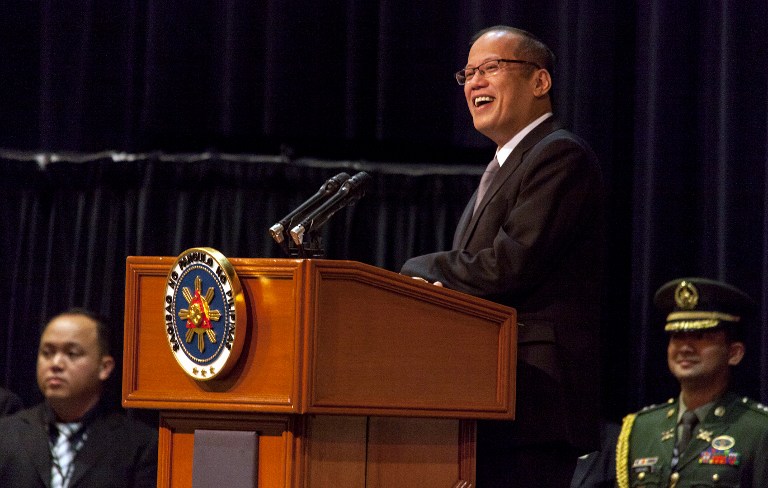SUMMARY
This is AI generated summarization, which may have errors. For context, always refer to the full article.

MANILA, Philippines (2nd UPDATE) – Three session days left before Congress takes its holiday break, President Benigno Aquino III gives the Reproductive Health bill (RH bill) another boost by certifying it as urgent.
The President told Palace reporters Thursday night, December 13, that he certified the bill as urgent Thursday since he wanted it passed before Christmas and put an end to the “divisiveness” that has marked the debate on the measure.
“Tonight I was convinced…the session will be ending next week, and [I’d like] to put an end to this divisive issue before we start the new year,” the President said in a mix of Filipino and English. “So to give them that opportunity to finish, especially the Senate, I certified the bill as urgent today…just tonight.”
The President’s last-minute move speeds up the legislative process.
It allows Congress – both the House of Representatives and the Senate – to possibly pass the bill on third and final reading as early as Monday, December 17.
Bills that are certified as urgent do not follow the “three-day rule” between the 2nd and 3rd reading. After the 2nd reading, lawmakers can immediately vote on a bill on final reading.
The Senate is scheduled to vote on the bill on 2nd reading on Monday, December 17. If it succeeds, the President’s certification allows it to immediately vote on the measure on final reading, without waiting for Thursday, December 20, its original schedule, which is too late for comfort.
“More than the procedural aspect that the certification brings, it gives the RH bill an added boost coming no less than PNoy himself. It totally changes the complexion of the bill,” Majority Floor Leader Neptali Gonzales II said.
“And for the doubting Thomases of the Liberal Party in the House, it sends a very clear and unmistakable message to its members as to the stand of its party leaders that we should support its passage.”
The House of Representatives passed the bill on 2nd reading early Thursday morning, December 13. To make sure of its passage, present in Congress were no less than Liberal Party president Manuel Roxas II, Budget Secretary Butch Abad, spokesperson Edwin Lacierda, and Communications Secretary Ricky Carandang.
Past hesitation
The President apparently realizes he should do more than send his political lieutenants to Congress and host lunches with lawmakers.
Despite earlier calls by his allies, Aquino had hesitated to certify the bill as urgent. On December 3, he met with members of the House over lunch and urged them to muster a quorum to formally start the period of amendments. He said he was in favor of the bill but fell short of ordering them to toe the line.
Not even his own party, the Liberal Party, took a party position on the matter. At the last minute this week, LP president (on leave) Roxas issued a statement stating that the LP leadership wants the bill passed. Still, 26 of the President’s partymates in the House voted no to the bill on 2nd reading.
Aquino’s certification of the bill leaves no doubt he wants to put an end to the long debates and, flexing presidential muscle, approve it.
The RH bill seeks to provide reproductive health services – including free contraceptives – to the poor who cannot afford them. The Catholic Church described it as anti-life, and it has been behind a massive campaign to block its passage.
It was a close vote at the House: 113-104-3 in favor of the RH bill.
Timeline
Second reading vote only requires voice voting, unless the results are questioned and the lawmakers are forced to do nominal voting. It is only on the third reading vote that nominal voting is required to register the votes cast by each member.
The House took 5 hours to pass the RH bill on second reading because it was forced to do nominal voting. It has about 285 members. The same scenario is not expected in the Senate, which only has 23 members.
If and when the RH bill passed third reading on both chambers of Congress, the next stage is the bicameral conference committee to consolidate the different versions. After the bicam, the consolidated version needs to be ratified by both the Senate and House. The President then signs it to turn it into a law. – Rappler.com
Add a comment
How does this make you feel?
There are no comments yet. Add your comment to start the conversation.